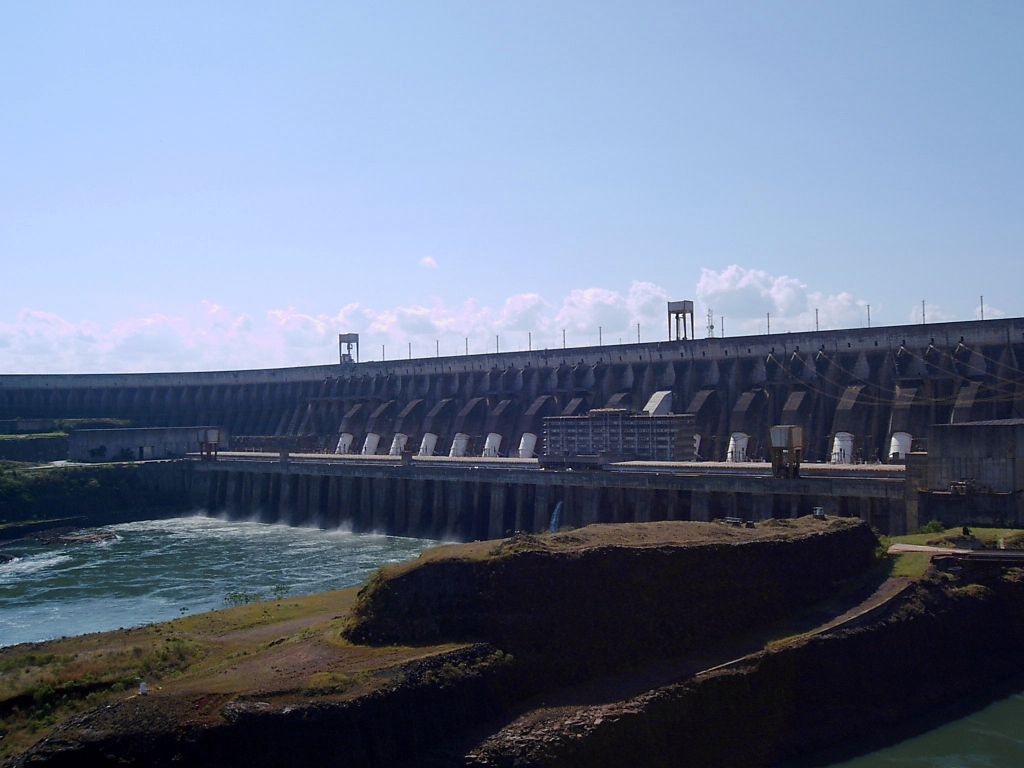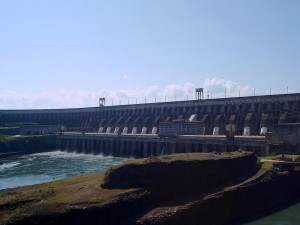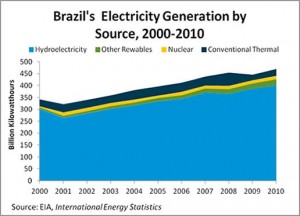
Will Drought Force Brazil to Ration Energy?
An unusually hot and dry summer in Brazil is curtailing energy production from its hydroelectric dams. The drought is threatening to force the government into rationing energy for the first time since 2001, when another severe drought hit the country.
With the vast Amazon rainforest, and the thousands of rivers that spring from it, Brazil is blessed with an abundant source of water from which to draw upon for energy. Brazil relies upon hydropower more than any other large country, allowing it to claim, in proportion to its size, the mantle of the world’s “greenest” economy. Hydropower makes up around 85% of its electricity production; by comparison, hydropower accounts for only 8% of electricity in the U.S.
The chart below shows Brazil’s electricity mix over the last decade:
The Brazilian economy has boomed over the past decade, riding a wave of high demand for commodities across the globe. In recent years, Brazil was the darling of international investors, with its status enshrined as the “B” in BRIC, an acronym used to describe promising high-growth developing countries (the others being Russia, India and China). It even weathered the global financial crisis well and emerged relatively unscathed.
However, economic growth in Brazil has stalled in recent months, with GDP growth falling from 7.5% in 2010 to an estimated 1.5% in 2012. Inflation also increased last year, even as the economy slowed.
The latest energy woes add to the existing concerns over a stagnating economy. The overwhelmingly reliance on hydropower puts the economy at risk and the latest drought is already having negative economic effects. Energy prices climbed 62% last week and the Brazilian stock market dropped 1% due to fears that the government will ration energy.
The government has insisted that they will not ration energy, but Reuters quoted a power executive saying, “The chance of not having rationing is small. The situation is ultra-critical.”
While many in Brazil are anxiously monitoring the situation, the short-term effect will not be huge. The larger concern is over the long-term because of the effects of climate change. Climate change threatens to upend precipitation patterns, making seasonal variations more unpredictable and potentially contributing to more frequent and severe droughts. So, with Brazil dependent on hydropower for four-fifths of its electricity, climate change will pose a serious risk to its energy security.
Brazil therefore needs to diversify its electric power sector. It has low levels of non-hydro renewable energy installed (although that is set to change over the coming decade, with promising plans for growth). It does have plans to build four new nuclear reactors by the end of the decade. And it is actively building new natural gas facilities.
Yet, Brazil still seems to prize large hydro projects over other sources of energy. The Belo Monte dam is the most high profile and highly controversial example – when it is completed, it will be the third largest dam in the world after the Three Gorges in China, and Itaipu, also in Brazil. This will only increase its reliance on hydropower.
The latest drought is an early warning of the energy security threats that Brazil will face from climate change in the coming years.








I think another big question is how much of the drought can be tied to forest loss in the Amazon. The rainforest generates a ton of rainfall and this would presumably be affected by deforestation.